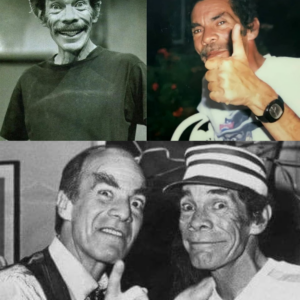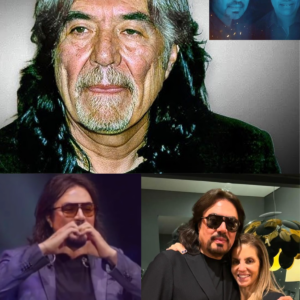Charles Bronson, the man with the steely gaze and imposing presence, was never the type of star who needed words to assert himself. However, it was a phrase of his that marked the beginning of one of Hollywood’s most tragic and mysterious stories in the early 1960s. While filming The Great Escape, Bronson looked directly into the eyes of his co-star, David McCallum, and delivered a stark warning: “Pay more attention to your wife, or I will take her from you.” At first, this appeared to be nothing more than a colleague’s provocative remark, but soon it would become a reality.

In 1967, David McCallum and his wife, Jill Ireland, divorced, and the following year, Jill married the unshakable Bronson. What began as a toxic triangle turned into one of Hollywood’s most intense love stories. But much like the characters Bronson portrayed on screen, their relationship was marked by tragedy, sacrifice, and, ultimately, a love that defied even death.
In this video, we explore the fate that brought Bronson and Ireland together, a life filled with triumphs and devastating blows. Behind the cameras, they silently fought against darker forces than any Bronson character had to face on screen. Their story, largely overlooked by many, serves as a reminder that the life of a Hollywood star is not always as bright as the screen on which they shine.
The marriage of Charles Bronson and Jill Ireland was anything but conventional. Despite initial tensions, David McCallum himself maintained a strange friendship with the couple, a sign of the deep ties within this complex triangle. Bronson and Ireland shared an unbreakable bond and soon became one of Hollywood’s most visible couples. With his career on the rise, Bronson made sure Jill was by his side, starring in at least 16 films together during a time when on-screen couples were not common. However, as their movies accumulated success and fame, a dark omen began to take shape in their personal lives.
In 1984, Jill was diagnosed with breast cancer, which marked the beginning of a long battle that would not only affect her but also the Bronson family. Bronson, famous for his toughness, was forced to show a side of him that few had seen before—the desperate husband willing to fight with everything he had for the love of his life. Jill, in her bravery, wrote two books about her struggle with the disease, and through her words, Hollywood and the world witnessed the determination they both shared.
As Jill battled cancer, the Bronson family’s life grew more complicated. Their adopted son, Jason McCallum, who had been part of the family since Jill’s first marriage to David McCallum, began to show signs of drug problems. This added pain became another test for Jill and Charles, who tried to hold their family together while facing their own personal battles.
Jill’s courage inspired many, but the strain of losing Jason to a heroin overdose in 1989 weighed heavily on her, especially as she was already weakened by her illness. Even as tragedy struck, Jill found the strength to keep going, motivated by the desire to give hope to others facing similar circumstances.
On May 18, 1990, surrounded by her family and with a heartbroken Charles by her side, Jill Ireland passed away at her home in Malibu. For Charles, it felt as though a part of him died with her. After her death, he was plunged into an abyss of grief from which it seemed impossible to escape. The toughness that had made him a Hollywood legend shattered. Those who knew him said he was never the same after losing Jill.
In tribute to her, Bronson commissioned a special cane with a secret compartment that held some of Jill’s ashes. This cane, which he never let go of, became his talisman and his comfort, a reminder of their eternal love that he carried with him everywhere. Though he remarried Kim Weeks years later, the memory of Jill remained untouched. Those around him could tell that, despite his attempts to move on, his true love, his soulmate, was no longer by his side.
Bronson’s sorrow was evident in his eyes. No longer the formidable figure of his glory days in Hollywood, he had become a man marked by absence, carrying an unhealable wound. As he tried to remain active in film, his roles, though still strong, lacked the intensity they once had. Behind every tough character, one could see a man broken by loss—someone whose soul no longer found solace in fame or recognition.
As the years passed, Charles Bronson’s physical health began to deteriorate as much as his emotional state. By the end of the 1990s, his health declined sharply. Far from the cameras and the spotlight, the man who had once been the symbol of toughness in Hollywood was now facing his own vulnerability.
News
Ángela Aguilar79
Ángela Aguilar permanece en el ojo del huracán desde junio pasado cuando destapó su romance con Christian Nodal, esto debido a los rumores de infidelidad que surgieron con la noticia. El escándalo generó una ola de críticas y ataques contra la…
Pepe Aguilar6666
En medio de la polémica que envuelve a la familia Aguilar debido a las declaraciones de la cantante argentina Cazzu sobre Ángela Aguilar, Pepe Aguilar reaparece sumamente emotivo Definitivamente, Ángela Aguilar no la ha pasado nada bien desde que inició…
POR QUE NUNCA EL
El verdadero nombre del personaje del Chavo del 8 es Rodolfo Filiberto Rafael O’Guglielmi. Esta revelación fue parte de un esfuerzo por despejar algunas dudas que existían sobre la identidad del famoso niño de la vecindad. Según el libro El…
LA HISTORIA REAL
El 2 de septiembre, Ramón Valdés habría cumplido 100 años, y probablemente esta sea una de las escenas más emotivas del querido actor en el programa que lo lanzó a la fama. El programa El Chavo del 8 estuvo al…
A sus 61 años
A sus 61 años, Adolfo Ángel, el mayor de Los Temerarios, sigue siendo considerado uno de los cantautores más destacados de la música grupera y de baladas románticas en México. Su éxito musical ha dejado una marca en la cultura…
Ángel Aguilar86
Por ello, este premio te pertenece a ti, Ángel Aguilar. Estoy muy agradecida de estar aquí esta noche, agradecida con Glamour por este increíble reconocimiento. Este honor no lo tomo a la ligera. Cada vez que me subo a un…
End of content
No more pages to load











